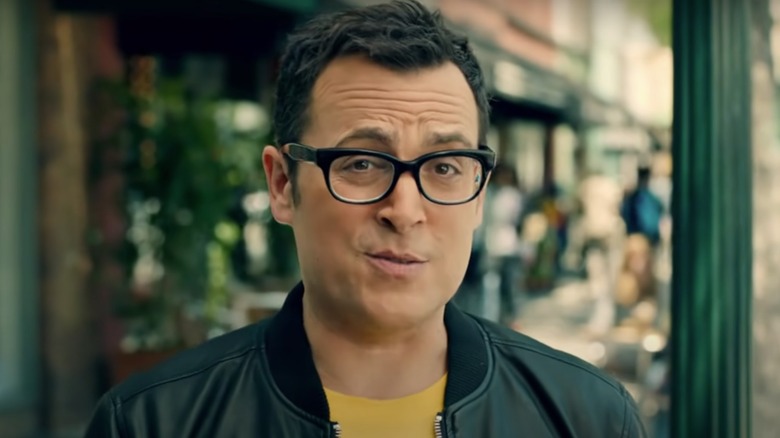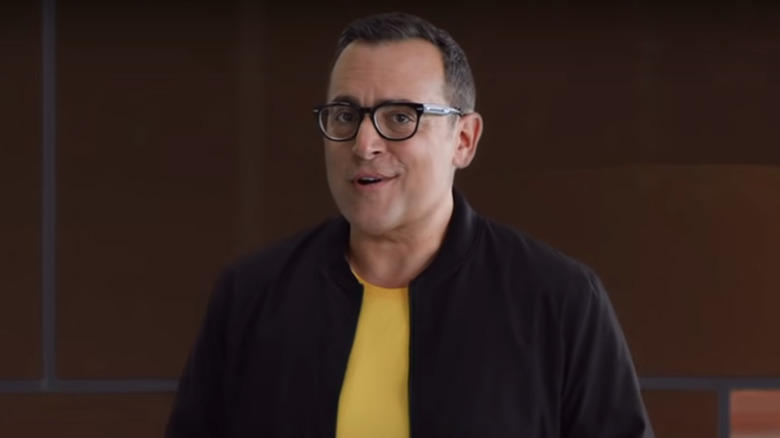Why The 'Can You Hear Me Now' Commercial Guy Really Switched From Verizon To Sprint
From 2002 to 2011, Verizon had a very memorable face starring in its commercials. Actor Paul Marcarelli, aka the "Can you hear me now?" guy from Verizon's commercials, popularized the company's long-running catchphrase in the very first Verizon ad he appeared in, and ran with it for quite a while. Marcarelli's presence greatly benefitted the company and made him into one of those commercial actors who look familiar. However, in 2016, a surprising thing happened when the actor was suddenly endorsing Verizon's competitor, Sprint.
The reason behind the switch is simple. When the actor's Verizon contract ended, Sprint contacted him and managed to wow him with its service. And after Marcarelli liked it, it was just a matter of getting him to star in an ad for them.
It's not what you'd call a subtle commercial, either. Talking directly at the viewer, Marcarelli immediately identifies himself as the guy who used to sprout catchphrases for Verizon, and then goes on to pitch Sprint as a more affordable, yet dependable company.
Marcarelli's switch to Sprint changed his role from a character to a customer
Despite — or because of — the direct approach, the "Paul Switched" ad worked for Sprint to the tune of 14 million views on YouTube. From that point forward, the collaboration continued.
In an interview with The New York Times, Paul Marcarelli named his ability to speak as a satisfied customer a key asset to his work with the company. "I don't represent them," the actor said about his relationship with Sprint. "I am one of their customers. They wouldn't presume to tell me what to say." This role is clear in the way he introduces himself in the "Paul Switched" commercial, and how he backs up the claims he makes. For example, in the "Network Confusion" ad, he specifically informs the audience that he personally thinks Sprint's service is great, and people are welcome to see if they agree.
This, Marcarelli says, was a key aspect of his decision to collaborate with Sprint. "I've been speaking as myself with my name," he added. "And there's no way that I would take a job if I in any way, shape, or form was being asked to tell a half-truth, lie, or closet myself."
Some popular commercials need special effects. Other times, companies throw money at celebrities to star in Super Bowl commercials. In Sprint's case, a former spokesperson for a competitor and some straight talk did the trick.

